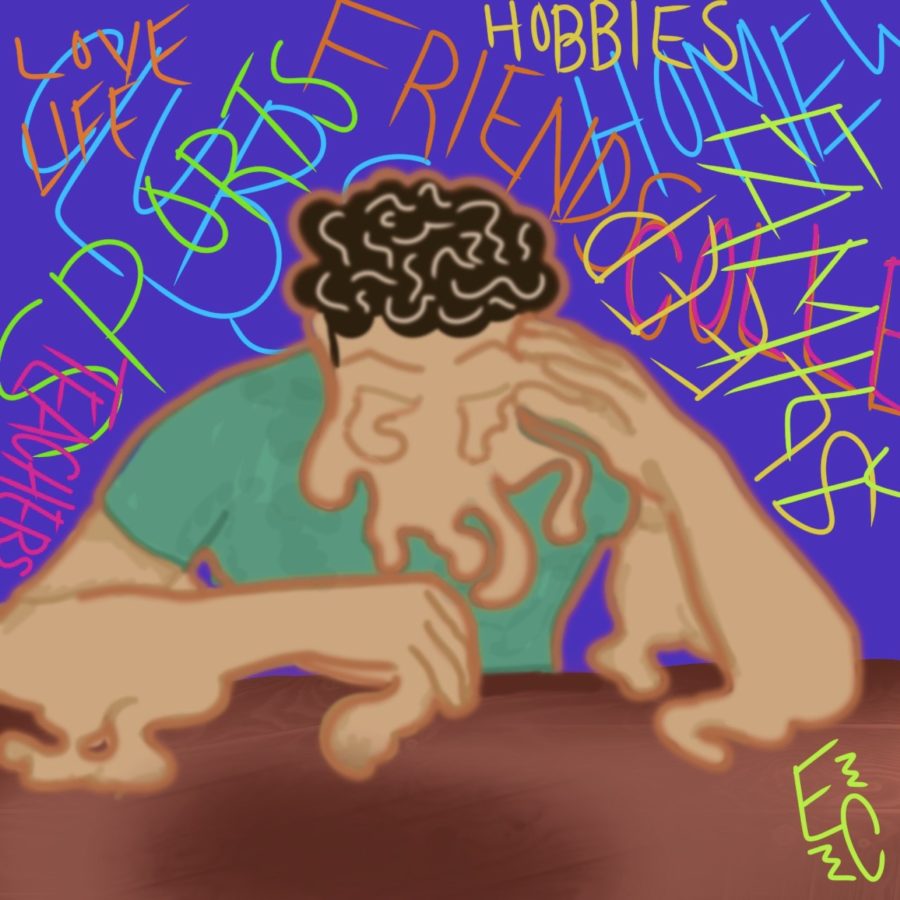How Can We Fix Academic Burnout?
January 24, 2023
Academic burnout: you have probably heard of it, but what is it? Academic burnout can be described as feeling pessimistic, sluggish and unproductive. It is an issue that affects students everywhere, no matter how difficult their classes are. We surveyed twenty-seven West High students to get their perspectives.
One of the many downsides of feeling burnt out is a constant lack of motivation to work toward your goals, especially when it comes to college. Ten students (37% of students surveyed) expressed that the pressure and stress of high school has discouraged them from continuing education after graduation. But why do they feel like this?
Motivation is a key factor in anyone’s success. When they are overwhelmed with work, students may feel like what they are doing is pointless. Kayla Haliczer told us about her experience: “It makes it hard to do anything when I get home. I am so drained after school from doing so much work, I cannot do any when I get home which makes everything even worse.”
“My schoolwork seems to lose quality along with quantity,” sophomore Caleb Cosme describes, “To the point where sometimes, I’ll turn in a fifteen-question homework assignment with three answered questions.”
This decrease in work quality causes students to fall farther behind with each new assignment. “Even if we pass a class, it doesn’t mean we’re ready for the next level,” sophomore Trinity Fulton says. This can cause a student to fall farther and farther behind as they progress through high school.
Part of the reason students believe they are burnt out is because of the workload. “I think teachers need to understand that students need less work outside of school,” sophomore Camila Landaverde says. “Many feel like they have no social life. Easing the workload would help tremendously since there would not be as much work for all six classes.”
How can a teacher help students avoid feeling overworked? “Evaluate the stress levels [of students] to help adjust the workload,” Junior Ethaniel Sianipar suggests. “As well as having days where they can study, rather than giving them a packet that will interfere with their energy levels.”
Every teacher has their own reasons for the work they assign to students. Another way teachers can help: “Something that teachers can do is praise their students often,” sophomore Kira Yong Do proposes. “I find that a lot of students who get academic burnouts tend to be hard on themselves. An authority figure can play a huge role in encouraging positivity. In a simplistic way, teachers should enforce a positive learning environment and assist with positive affirmations.”
There is no simple solution to burnout. Students can also help themselves by finding their own coping mechanisms and strategies. “The best thing I can recommend is to schedule your time wisely and focus on disciplining yourself, so you procrastinate less and be more productive,”
Junior Jaden Paolo Anquillano advises. Twenty-five out of twenty-nine (87%) students say they procrastinate on their homework.
“Coffee, tea and sleep. Those are very useful/helpful” suggests junior Ava Reyes.
Eradicating academic burnout does not have one simple solution. It is important to take care of yourself and do what you can to stay motivated. Take breaks, talk to your friends, take time to eat. It is a struggle so many students face, remember that you are not alone.

